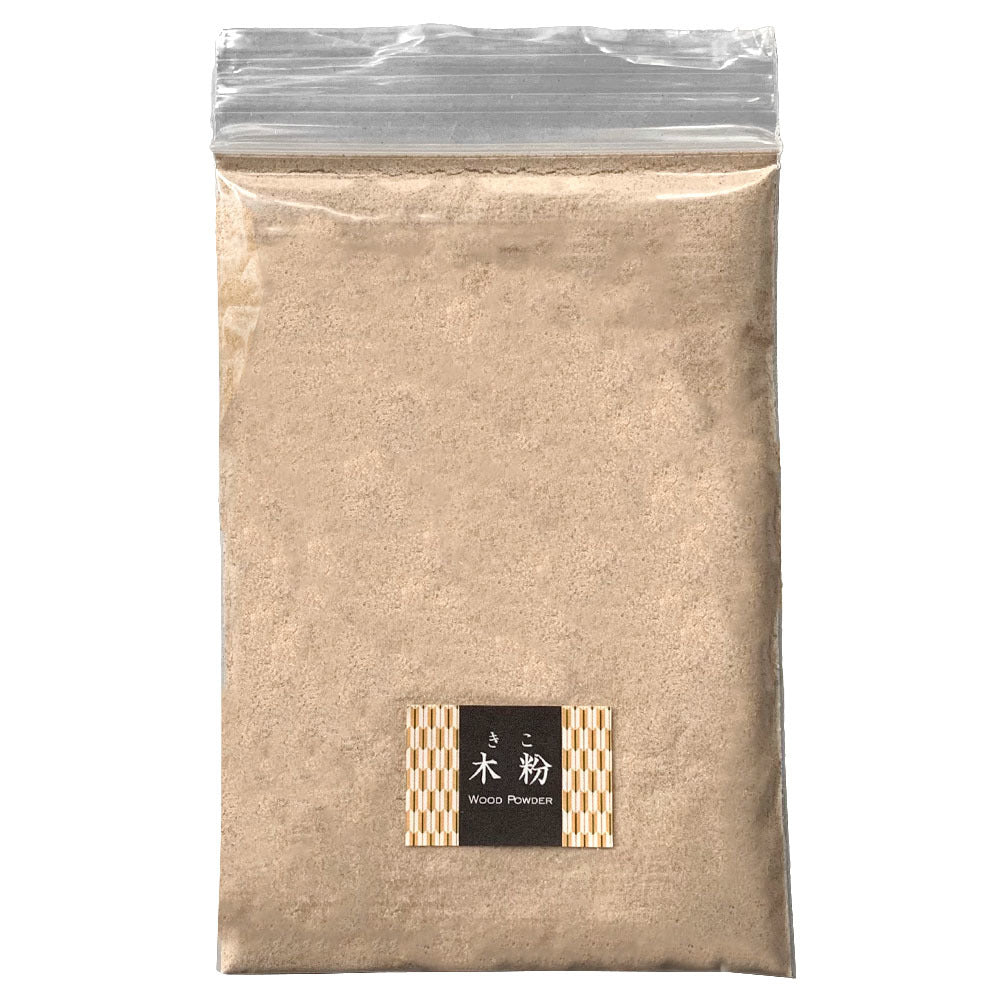
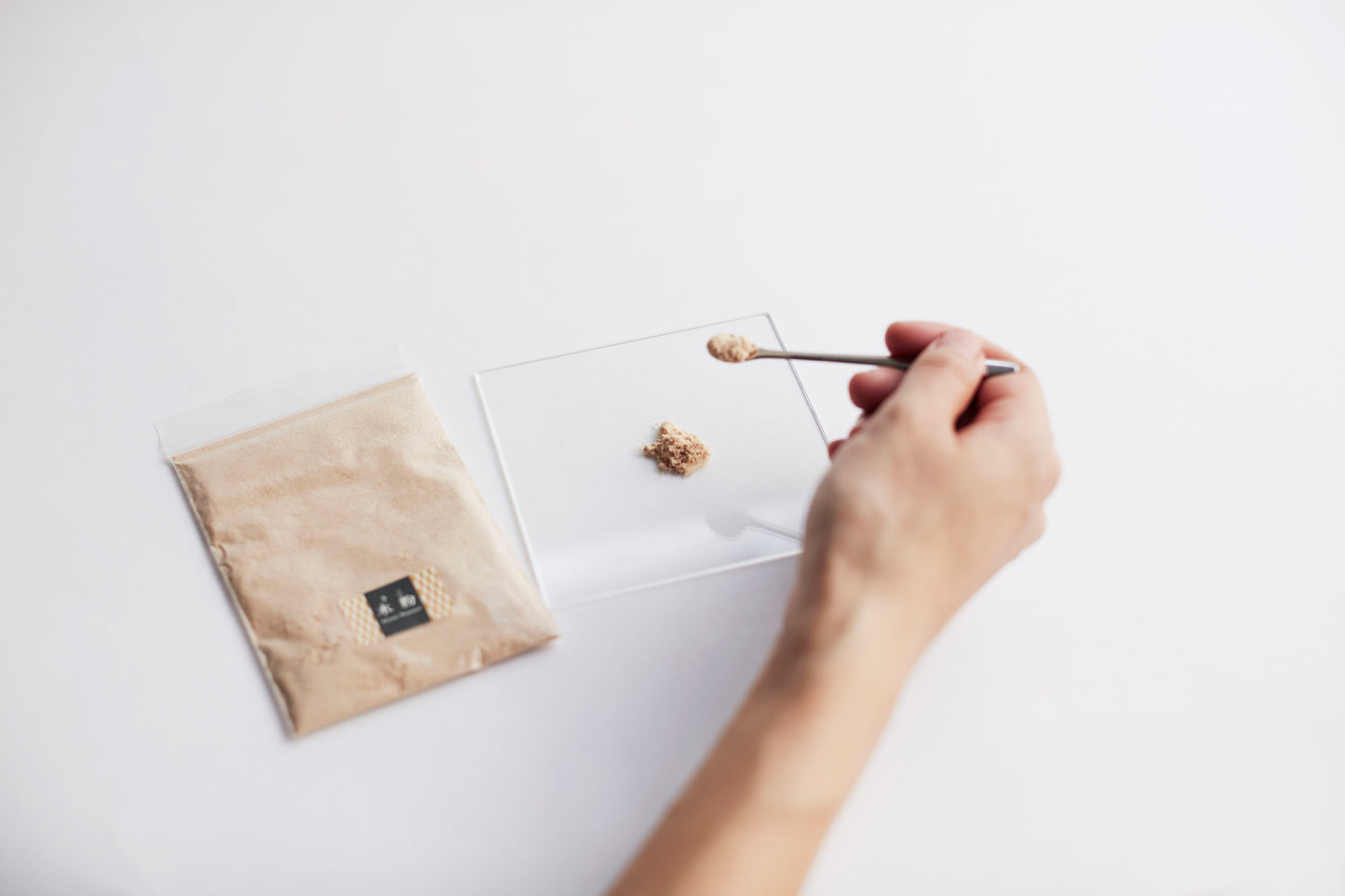
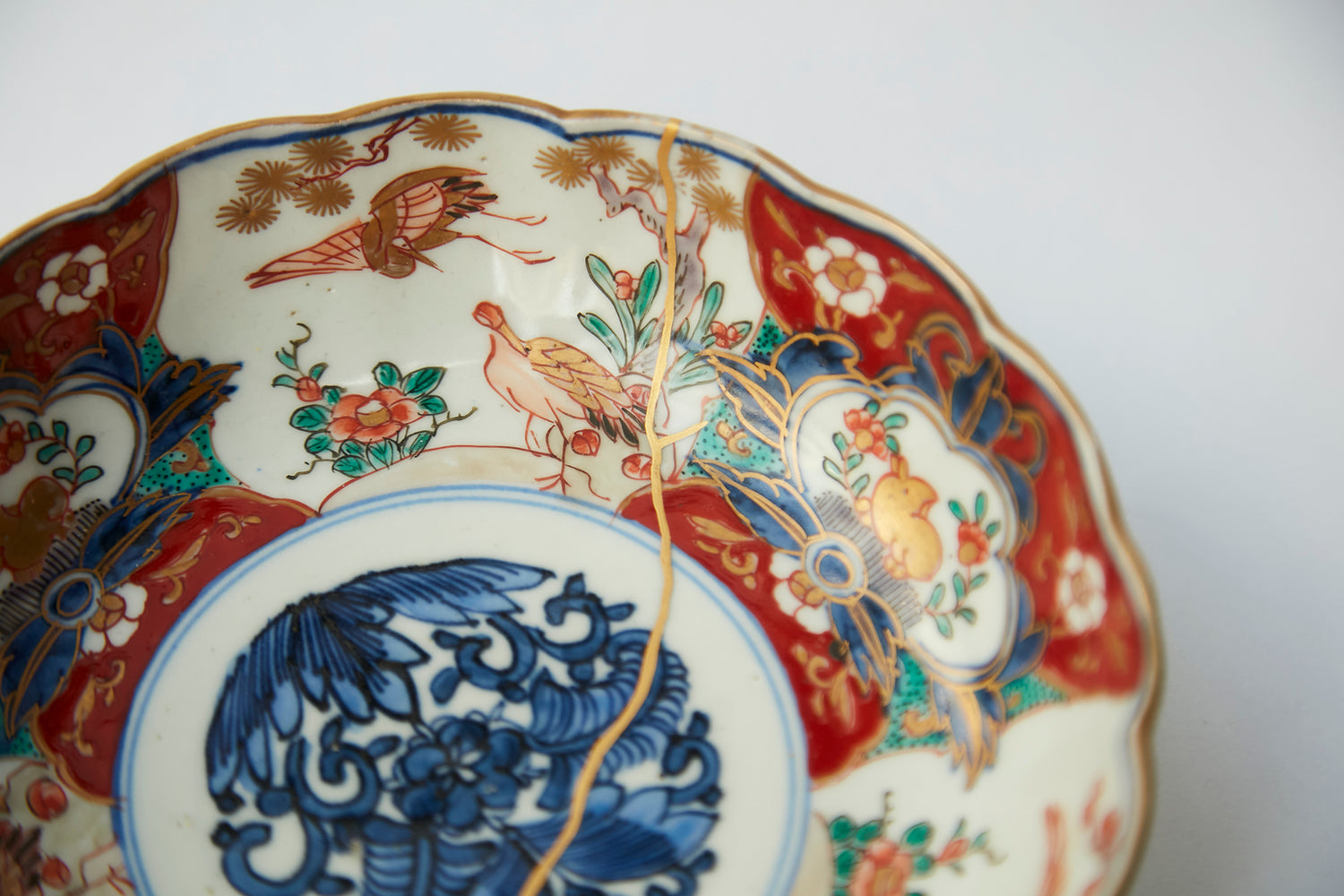
What is Kintsugi?
Kintsugi is a traditional Japanese art form that originated in the 15th century, and it's been around for over 500 years. When a cherished piece of pottery or porcelain breaks, Kintsugi specialists repair it using natural materials such as genuine lacquer and then decorate the repair marks with gold or silver to make them stand out instead of trying to hide them. Rather, we should allow cracks and blemishes in our belongings to shine and tell a story of their own. The result is an object that's more beautiful than before it was broken, and uniquely valuable because of its history. This is the kintsugi philosophy.
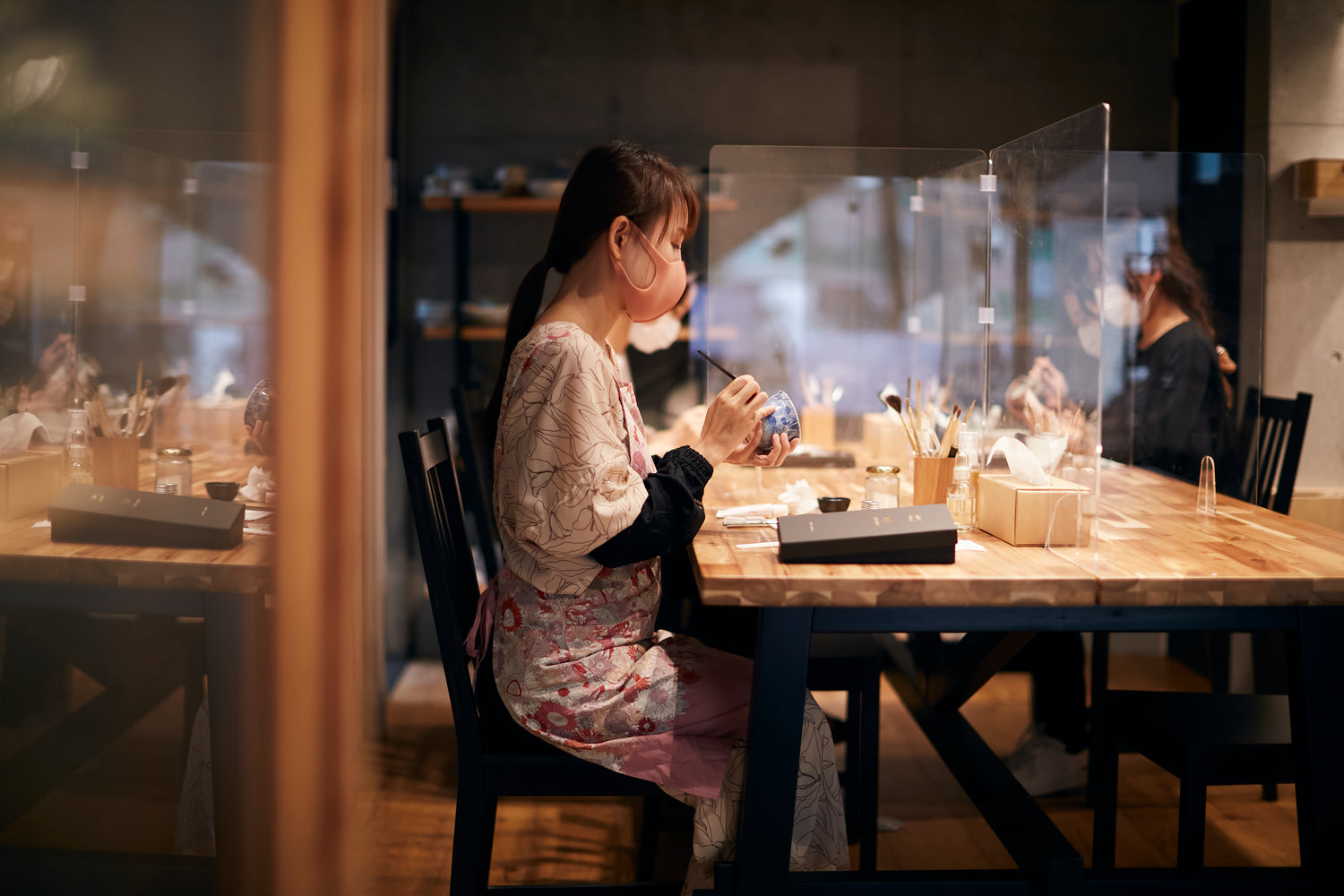
We Are Kintsugi Specialists
Tsugu Tsugu is proud to be part of this ancient tradition—we use only natural materials for our kintsugi repairs. We know where beginners tend to get stuck in the process because we receive so many repairs every day and have taught kintsugi classes for years. That's why our products are filled with educational information and easy-to-understand instructions, along with YouTube videos on the proper way to perform authentic kintsugi. Our goal is to help people around the world successfully perform authentic kintsugi and enjoy a long and prosperous life with their beautiful and favorite pottery.
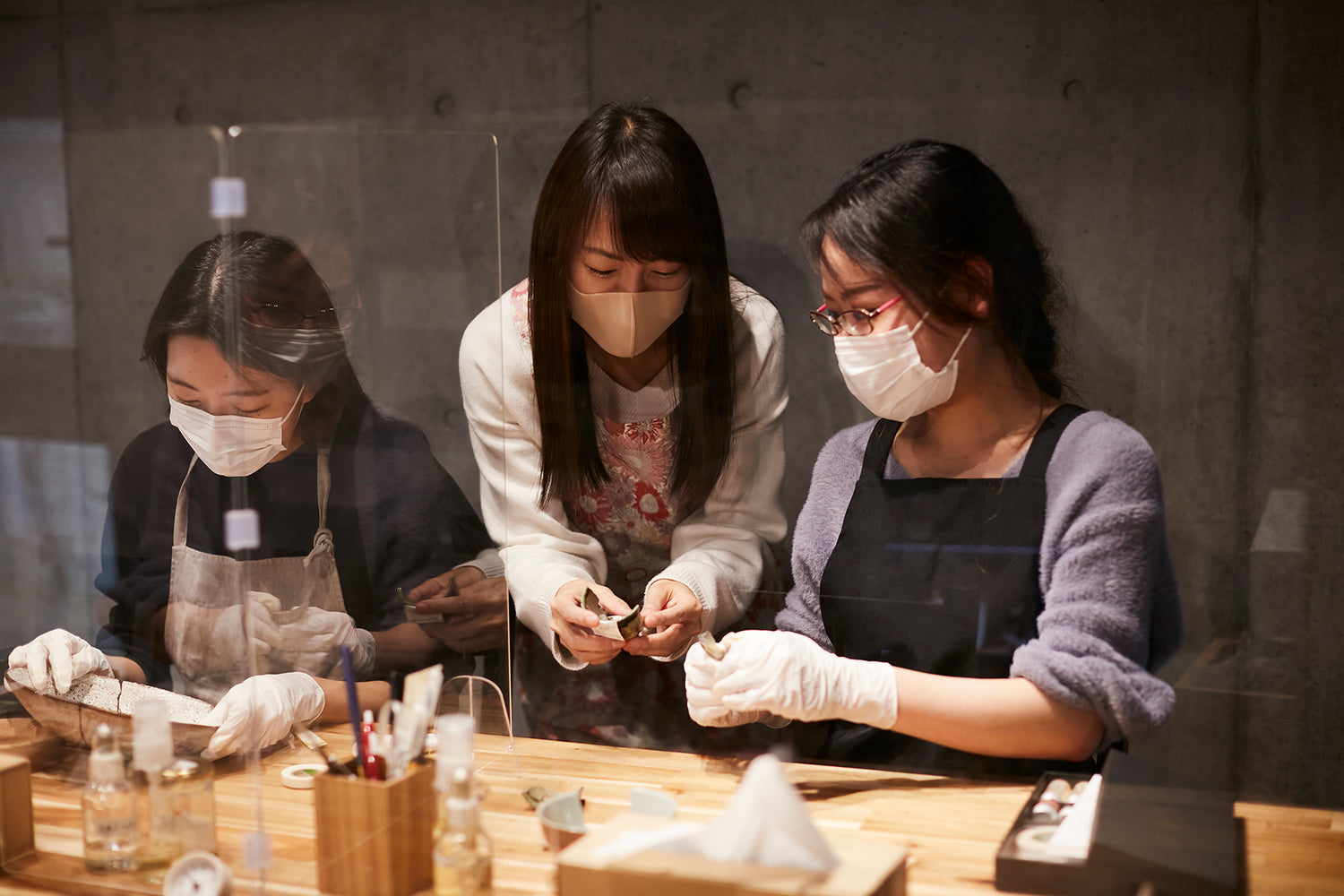
About Tsugu Tsugu
At Tsugu Tsugu, we are proud to offer kintsugi classes almost every day so that you can share in the fascination of restoring broken pottery.
We believe that there's something special about a piece of broken pottery—it's not just an object that needs to be thrown away, but rather it becomes a treasure once repaired with gold or silver lacquer and put back together. We want to make sure that as many people as possible get to experience this ancient Japanese technique and feel the same joy we do when we see our customers' faces light up with excitement.


